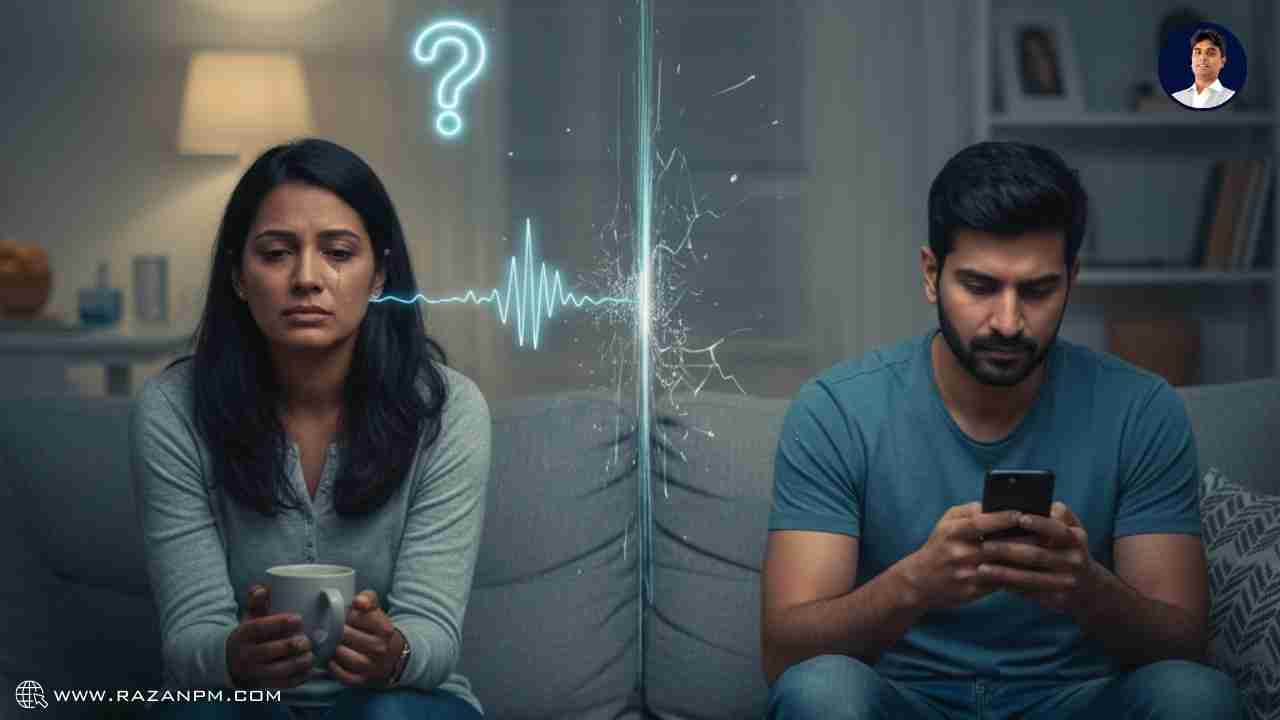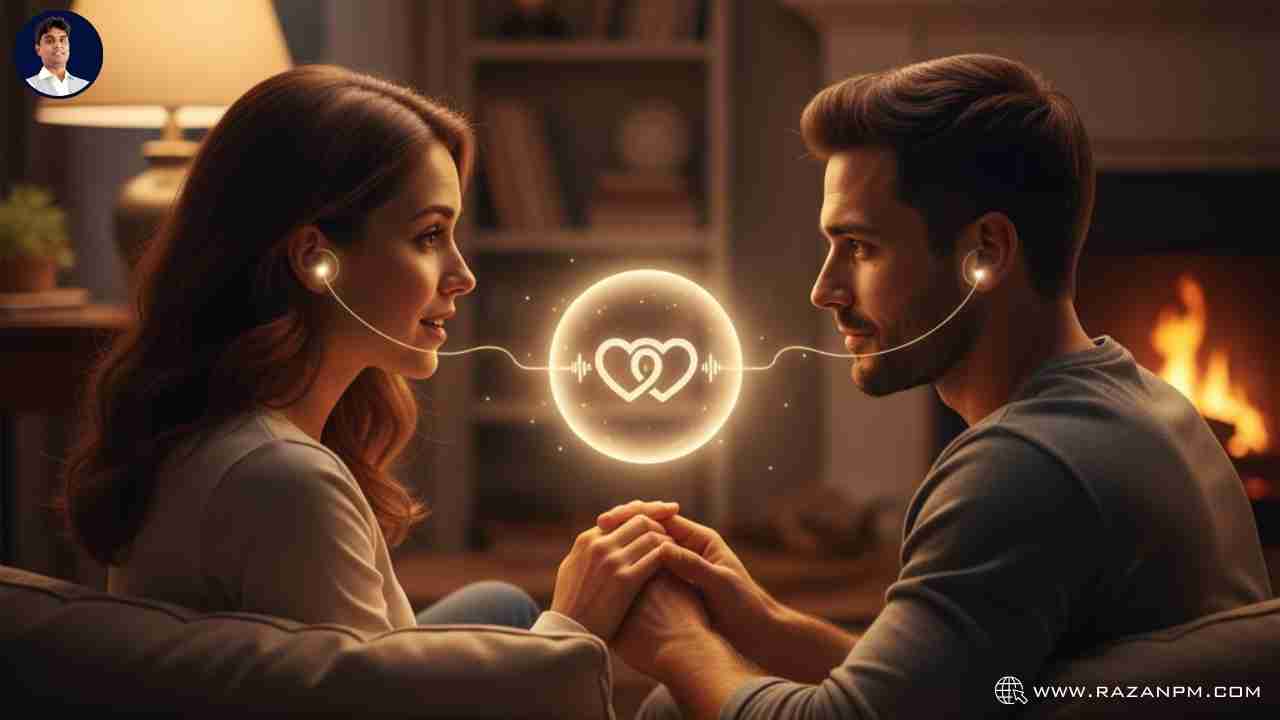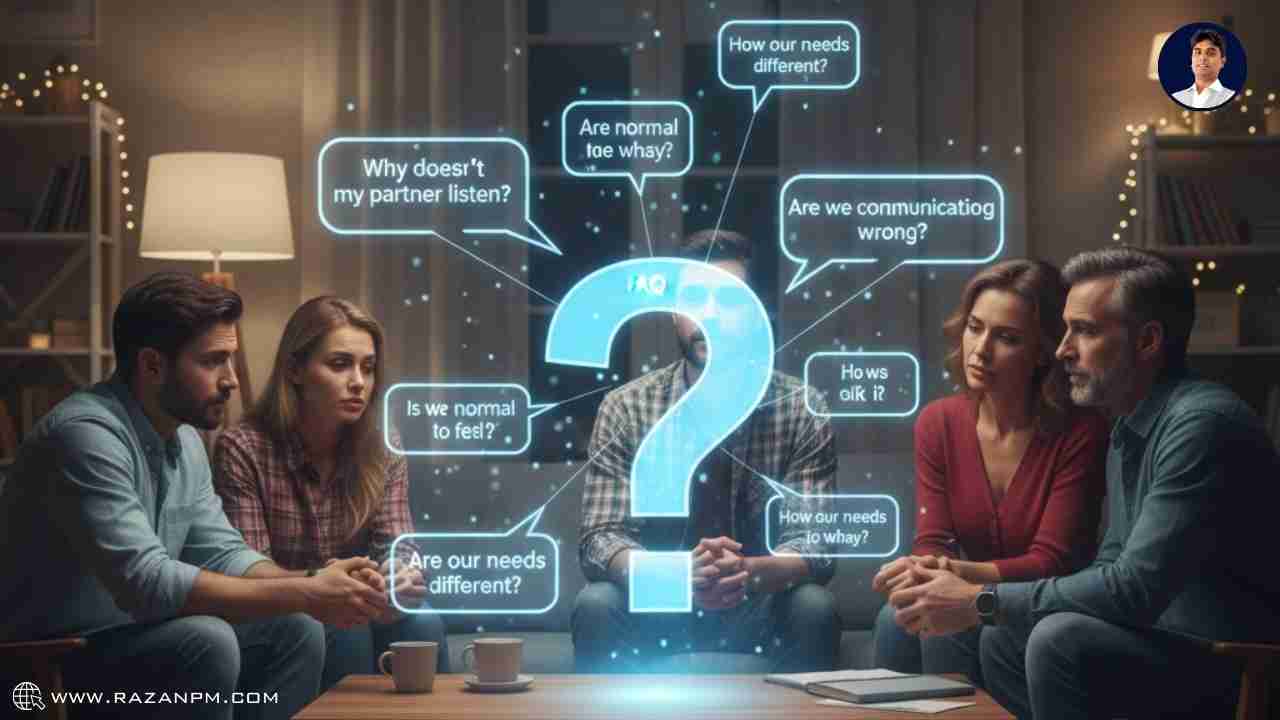It starts with something this small. Ek chhoti si baat – lights, socks on the floor, ya TV ka volume. But instead of solving it calmly, it spirals. One person feels ignored, dusre ko lagta hai unki baat ka value hi nahi. Slowly, choti choti baatein ek mountain of silence ban jaati hain.
This silence is not peaceful. It’s heavy. It’s where one partner feels like shouting “Why don’t you just listen to me!” while the other thinks “No matter what I say, it’s never enough.”
As a Clinical Psychologist and NLP Expert, I’ve seen this pattern hundreds of times. Couples who love each other deeply but feel emotionally unheard. And believe me, when “listening” breaks down, relationship ka heart connection bhi crack hone lagta hai.
also read: why actions speak louder than wordsin relationships?
When couples feel unheard, they don’t just complain – they start doubting.
This feeling slowly turns into resentment, sadness, aur kabhi kabhi toh silent withdrawal. Emotional trauma creeps in, jisme partner physically present hota hai but emotionally absent lagta hai.
also read: 10 signs she is secretly starvingfor intimacy

also read: why illness leaves more than justphysical scars?
From a DSM-5 (Diagnostic and Statistical Manual of Mental Disorders) aur ICD-10/11 perspective, lack of listening and communication issues are not “disorders” in themselves, but they trigger and worsen mental health conditions like:
NLP (Neuro Linguistic Programming) ke lens se dekhe toh, jab partner repeatedly unheard feel karta hai, ek negative anchor create hota hai. Matlab, jaise hi wo apni baat share karne jata hai, dimaag automatically switch ho jata hai to “They won’t listen anyway.” This reinforces hopelessness.
also read: how to spot hidden depression indaily fatigue?

Studies in Journal of Marriage and Family Therapy show ki couples who practice active listening (paraphrasing, validating emotions, giving full attention) report 70% higher relationship satisfaction.
Another study from Gottman Institute reveals ki couples don’t break because of big fights, but because of small, repeated moments of feeling unheard.
also read: 7 ways social media silence damagesrelationships
I remember one couple I worked with – let’s call them Aman and Neha.
Aman said: “I bring her flowers, I provide for the house, still she says I don’t listen.”
Neha cried: “He hears me, but he doesn’t feel me.”
That line hit me hard. “He doesn’t feel me.”
This wasn’t about logistics. It was about emotional presence.
We worked together with structured NLP reframing and active listening exercises. Slowly, Aman learned not to fix Neha’s problems immediately, but to sit, look into her eyes, and validate her emotions. Neha, on the other hand, learned to express needs without attacking.
The result? They rebuilt their bond. Not by grand gestures, but by everyday listening.
also read: when physical disease and depressioncollide?

Next time your partner talks:
Say back in your own words what you heard. Example:
It sounds small, but trust me – when someone hears their feelings echoed, they instantly feel valued.
also read: why emotional distance slowlydestroys relationships?
Of course, ek blog se pura solution nahi milta. Real change requires breaking old communication patterns, reframing thought processes, aur building new listening habits step by step. That’s where guided therapy and NLP-based couple coaching makes the real difference.
also read: why long-term illness fuels silentdepression?
If this blog felt close to home, let me reassure you – you’re not alone. Bohot couples issi struggle se guzarte hain. And healing begins with one small step of truly listening.
If you’re tired of feeling unheard, ya apko lagta hai communication repair karna mushkil hai, I’d be honored to guide you. Together, hum ek safe space banayenge jahan aap dono ki awaaz sunayi bhi de aur samajhi bhi jaye.
👉 If this feels familiar, you don’t have to figure it out alone. Book your consultation here.👇👇👇
👉 Begin Your Journey with a 1 on 1 Consultation
👉 Begin Your Journey with a 1 on 1 Consultation

Ans: Couples feel unheard when emotional needs are dismissed, distractions take over, or active listening skills are missing.
Ans: Repeating yourself often, feeling ignored, emotional disconnect, and frequent arguments are common signs.
also read: why chronic disease brings more thanjust pain?
Ans: It can increase anxiety, lead to sadness, emotional withdrawal, and even relationship trauma if ignored for long.
Ans: Yes, research shows active listening builds trust, improves communication, and strengthens emotional connection.
Ans: Pause distractions, maintain eye contact, and repeat your partner’s feelings in your own words.
Ans: If communication breakdown continues despite trying, or one partner feels invisible and unvalued, therapy helps.
also read: 5 ways chronic illness can hidedepression symptoms
